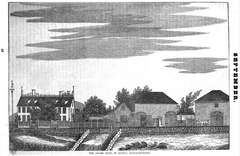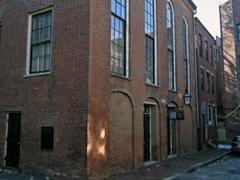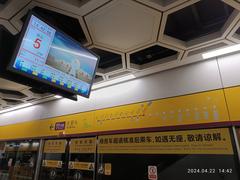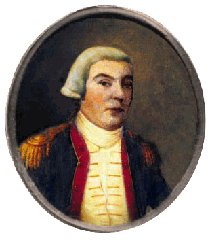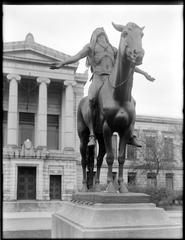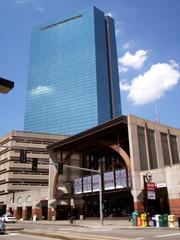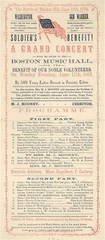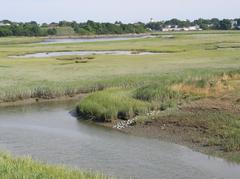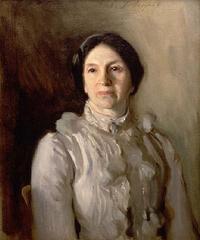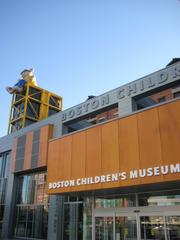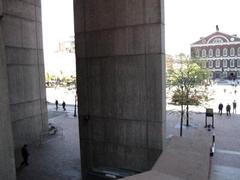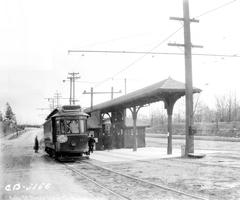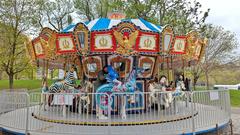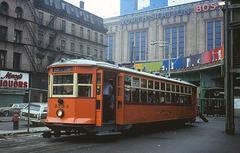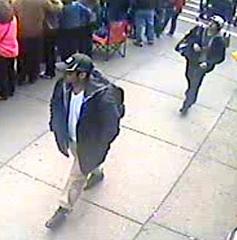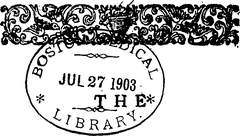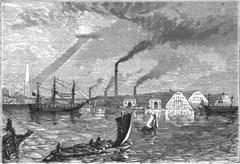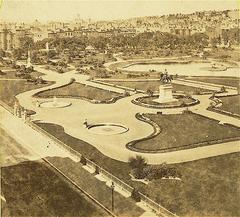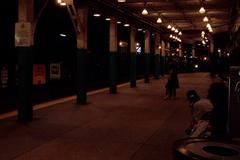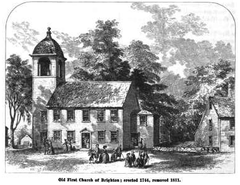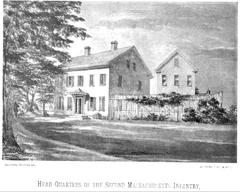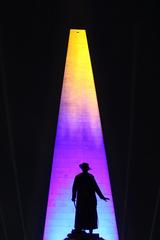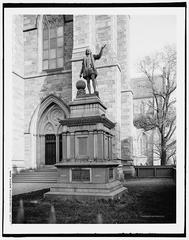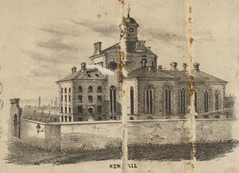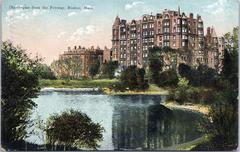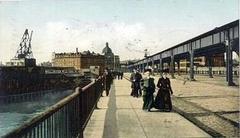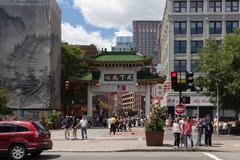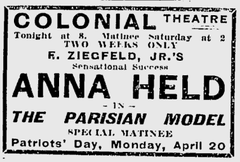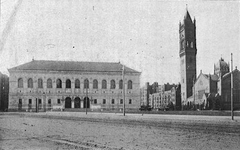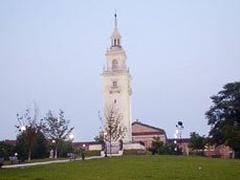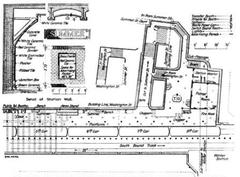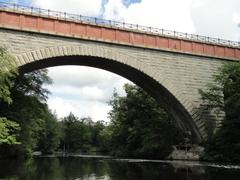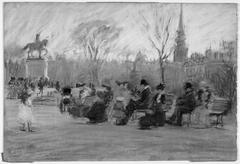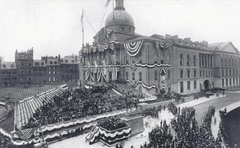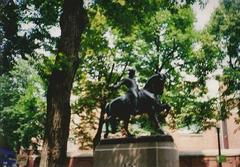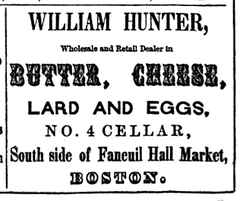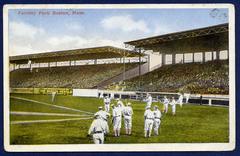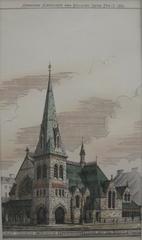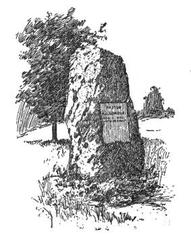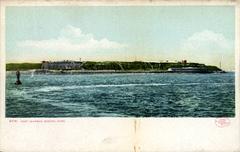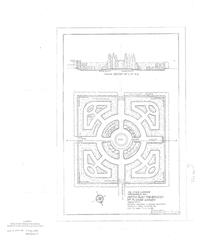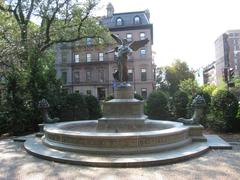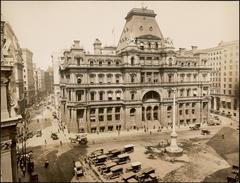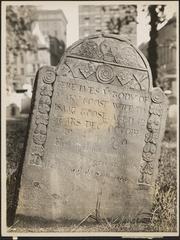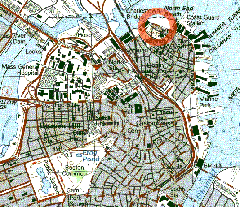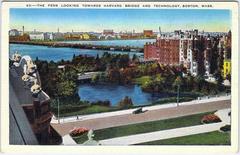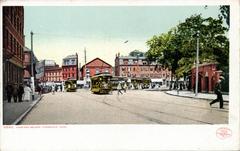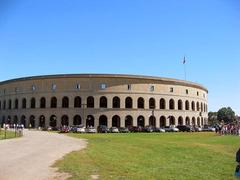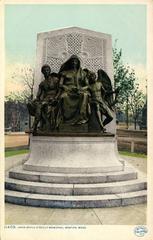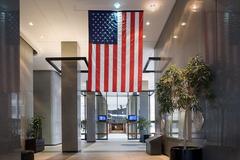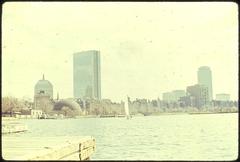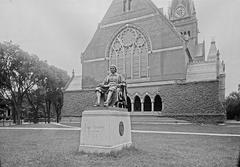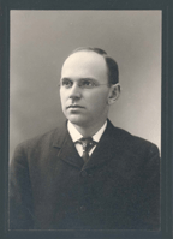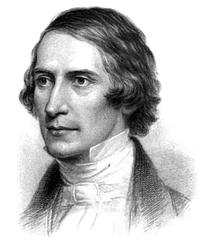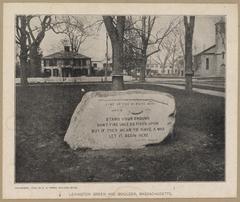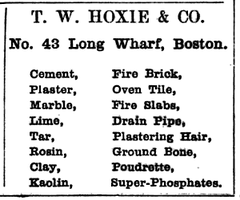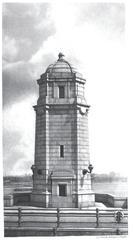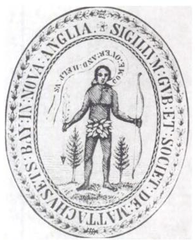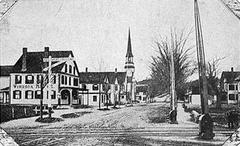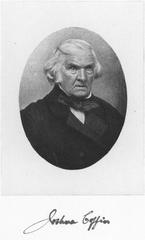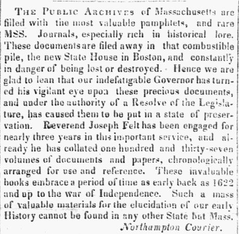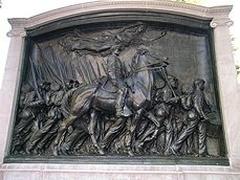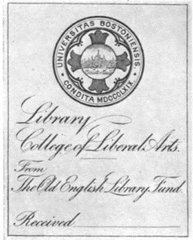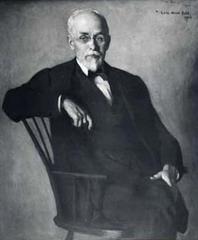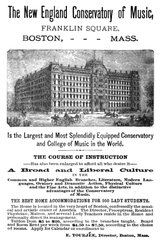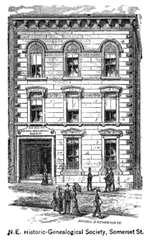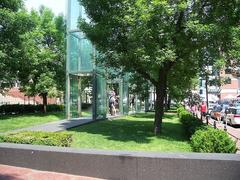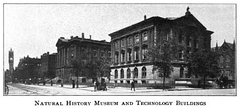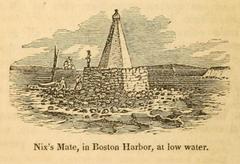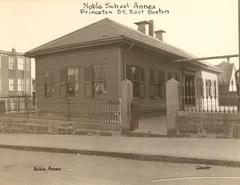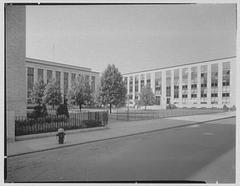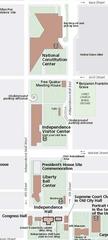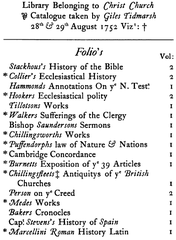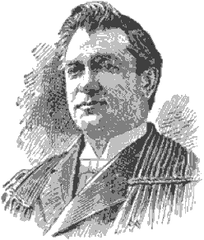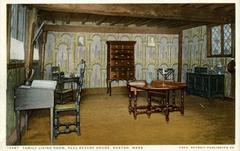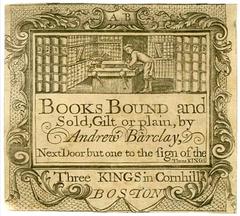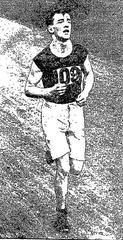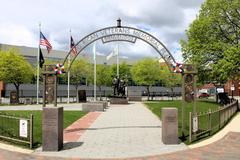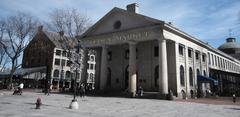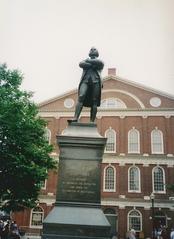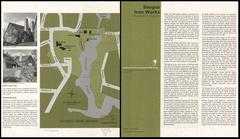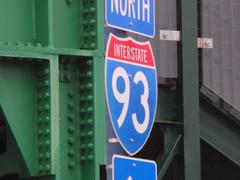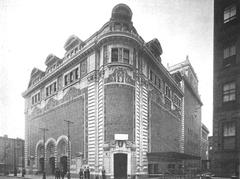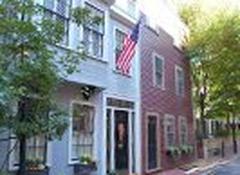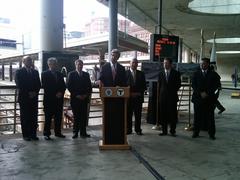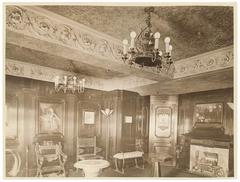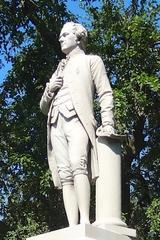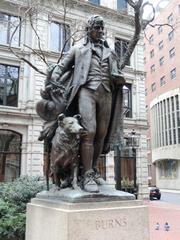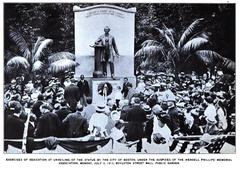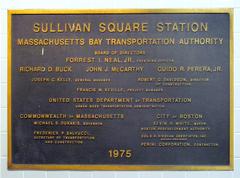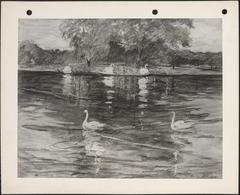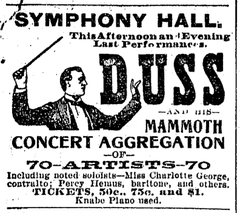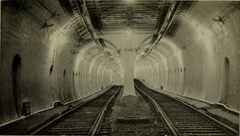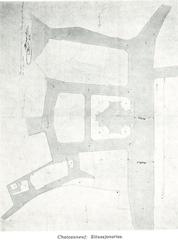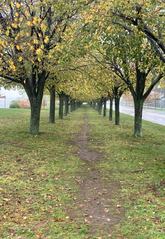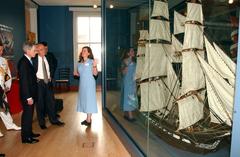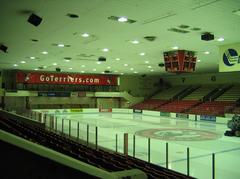
Orpheum Theatre Boston: Visiting Hours, Tickets, and Historical Guide
Date: 04/07/2025
Introduction
Located in the heart of downtown Boston, the Orpheum Theatre stands as one of the city’s oldest and most treasured cultural landmarks. Since its opening in 1852 as the Boston Music Hall, the Orpheum has evolved through eras of classical music, vaudeville, cinema, and live concerts. Its historic architecture, renowned acoustics, and central location near iconic Boston historical sites make it a must-visit for locals and travelers alike. This guide provides everything you need to plan your visit, from ticketing and accessibility information to the theatre’s unique history and tips for exploring nearby attractions.
For the latest show schedules and visitor information, consult the official Orpheum Theatre Boston website and the Downtown Boston Business Directory.
Table of Contents
- Historical Overview
- Visiting the Orpheum Theatre
- Travel Tips and Nearby Attractions
- Enduring Cultural Impact
- Visitor Experience & Practical Information
- Frequently Asked Questions (FAQ)
- Conclusion
- References
Historical Overview
Early Foundations: Boston Music Hall (1852–1900)
The Orpheum Theatre began its journey as the Boston Music Hall in 1852, quickly establishing itself as a centerpiece for classical music in the United States (Wikipedia, Cinema Treasures). Designed by architects Snell and Gregerson, the hall was celebrated for its excellent acoustics and elegant design. It played a vital role in Boston’s cultural life, hosting concerts, lectures, and social gatherings.
The hall served as the founding home of the New England Conservatory of Music in 1867 and hosted the Boston Symphony Orchestra from its inception in 1880 until 1900 (Wikipedia). These milestones solidified its reputation as a cradle of musical excellence.
Transformation to Vaudeville and Cinema (1900–1930s)
As entertainment tastes shifted in the early 20th century, the venue was reimagined as the Empire Theatre in 1905, focusing on vaudeville performances (Downtown Boston Business Directory). By 1906, it was renamed the Orpheum Theatre and became part of the prestigious Orpheum Circuit, a national network of vaudeville venues. In 1910, cinema magnate Marcus Loew acquired the building and enlisted architect Thomas Lamb to redesign it in the refined Adam style, introducing a grand golden-hued proscenium arch (Downtown Boston Business Directory).
The Orpheum transitioned to film screenings during the 1930s, adapting to the changing entertainment landscape.
Architectural Evolution and Preservation
Thomas Lamb’s renovations (1915–1916) brought sophisticated Adam style elements, including classical motifs and ornate plasterwork (Cinema Treasures). The theatre’s Beaux-Arts influences and historic interior details have been carefully preserved, contributing to its enduring charm (The Royal George Theatre).
The Orpheum as a Cultural Landmark (Mid-20th Century–Present)
The Orpheum’s adaptability has kept it at the forefront of Boston’s arts scene. In the mid-to-late 20th century, it evolved into a premier concert venue, hosting legendary artists such as U2, Bob Dylan, The Police, Aerosmith, and David Bowie (Cinema Treasures). Renovations in 2009 under Crossroads Presents and Live Nation ensured its continued relevance, while maintaining its historic character.
The Orpheum’s Place in Boston’s Urban Fabric
Located at 1 Hamilton Place, just steps from Boston Common and Tremont Street, the Orpheum is embedded within Boston’s historic downtown (Orpheum Theatre Boston). Its discreet entrance and proximity to iconic neighborhoods like Beacon Hill and the Public Garden make it a natural addition to any Boston itinerary.
Visiting the Orpheum Theatre
Visiting Hours
- Box Office: Typically open Monday–Saturday, 10:00 AM–6:00 PM; extended hours on event days. Confirm specific hours before your visit (Orpheum Theatre Boston).
- Event Entry: Doors usually open 60–90 minutes before showtime. Early arrival is recommended for security screening and to find your seat.
Tickets
- Purchase Options: Tickets are available via the official theatre website, Crossroads Presents, and trusted resale platforms like TicketSales.com.
- Box Office: Open a few hours before each event.
- Pricing: Varies by event, seat location, and demand. Early booking is recommended for popular shows.
Accessibility
- Wheelchair Access: Accessible seating and restrooms available; some historic areas may have limited access (Crossroads Presents).
- Assistive Listening: Devices available upon request.
- Elevators: Limited due to historic structure; staff available to assist as needed.
Entry and Security
- Security Screening: All guests are subject to bag checks; large bags, backpacks, and outside food/drink are prohibited.
- E-Tickets: Mobile and printed e-tickets accepted.
Travel Tips and Nearby Attractions
Getting There
- Public Transit: The Orpheum is accessible via the MBTA subway system. Closest stops: Park Street (Red/Green Lines), Downtown Crossing (Red/Orange Lines), and Government Center (Blue/Green Lines).
- Parking: No dedicated garage; public parking is available nearby at Boston Common Garage and Tremont Garage. Street parking is limited (Orpheum Theatre Information).
Nearby Boston Historical Sites
- Freedom Trail: A historic walking route connecting Boston’s most significant landmarks.
- Boston Common: The oldest public park in the U.S., ideal for a pre- or post-show stroll.
- Granary Burying Ground, Faneuil Hall, Quincy Market: All are within walking distance and offer a deeper dive into Boston’s history (Nomadic Matt).
Dining and Amenities
- Concessions: Snacks and beverages (including alcohol) available inside the theatre.
- Dining: Numerous restaurants and bars are located in the surrounding downtown area—reservations recommended on event nights.
Enduring Cultural Impact
Shaping Boston’s Entertainment Landscape
Since its inception, the Orpheum Theatre has played a pivotal role in shaping Boston’s performing arts scene (Orpheum Theatre Information). From its classical roots to its central place in vaudeville and modern live music, the venue has hosted countless renowned performers and world-class acts (Concert Near Me).
Legendary Performers and Historic Moments
- The Police: Recorded part of their live album here during their 1979 U.S. tour (Orpheum Theatre Information).
- U2, Bob Dylan, David Bowie, Aerosmith, Bruce Springsteen: All have graced the Orpheum stage (Ticketmaster Venue FAQ).
- The Beatles: Held a press conference here in 1964, cementing the theatre’s place in music history.
- Live Recordings: The theatre’s acoustics have made it a preferred location for live albums by The Police, Tin Machine, and The Allman Brothers Band (Ticketmaster Venue FAQ).
Diverse Programming
The Orpheum hosts concerts spanning rock, pop, jazz, folk, and classical genres, as well as stand-up comedy, theatrical productions, and community events (Orpheum Theatre Information, Orpheum Theatre Events). Recent and upcoming performances include Jesse McCartney, Dermot Kennedy, Patti Smith, and Calum Scott.
Visitor Experience & Practical Information
Venue Layout and Seating
- Capacity: Approximately 2,700 seats, divided into orchestra, mezzanine, and balcony levels (Orpheum Theatre Information).
- Atmosphere: Ornate historic décor, plush seating, and a sense of intimacy enhance the live experience.
- Photographic Spots: The ornate lobby, golden proscenium arch, and auditorium provide excellent photo opportunities.
Dress Code
No formal dress code; smart casual attire is typical.
Visitor Conduct
- Prohibited Items: Large bags, outside food/drink, weapons, and professional cameras.
- Respectful Behavior: Disruptive guests may be removed.
Frequently Asked Questions (FAQ)
Q: What are the Orpheum Theatre’s visiting hours?
A: The box office is typically open Monday–Saturday, 10:00 AM–6:00 PM. Doors open 60–90 minutes before showtime.
Q: How can I purchase tickets?
A: Via the official website, Crossroads Presents, or authorized resale platforms.
Q: Is the theatre wheelchair accessible?
A: Yes. Accessible seating and restrooms are available; contact the theatre in advance for arrangements.
Q: Where can I park?
A: Use Boston Common Garage or Tremont Garage. Public transit is highly recommended due to limited street parking.
Q: Are guided tours available?
A: Guided tours are occasionally offered. Check the theatre’s website or contact the box office for details.
Q: What are some nearby attractions?
A: Boston Common, Freedom Trail, Granary Burying Ground, Faneuil Hall, and Quincy Market.
Conclusion
The Orpheum Theatre Boston is a living testament to the city’s artistic legacy, blending historical grandeur with contemporary entertainment. With its central location, rich programming, and proximity to Boston’s most celebrated historical sites, the Orpheum offers an unforgettable experience for every visitor. Plan ahead by checking visiting hours and securing tickets, and take time to explore the vibrant neighborhood for a complete cultural adventure.
Stay connected with the latest events and exclusive content by downloading the Audiala app and following the Orpheum Theatre on social media.
References
- Orpheum Theatre Boston: Visiting Hours, Tickets & Historical Guide
- Downtown Boston Business Directory
- Wikipedia: Orpheum Theatre (Boston)
- Cinema Treasures
- Orpheum Theatre Boston Official Website
- Concert Near Me: Orpheum Theatre Boston
- Ticketmaster Venue FAQ: Orpheum Theatre Boston
- Crossroads Presents: Orpheum Theatre
- Nomadic Matt: Boston Itinerary

